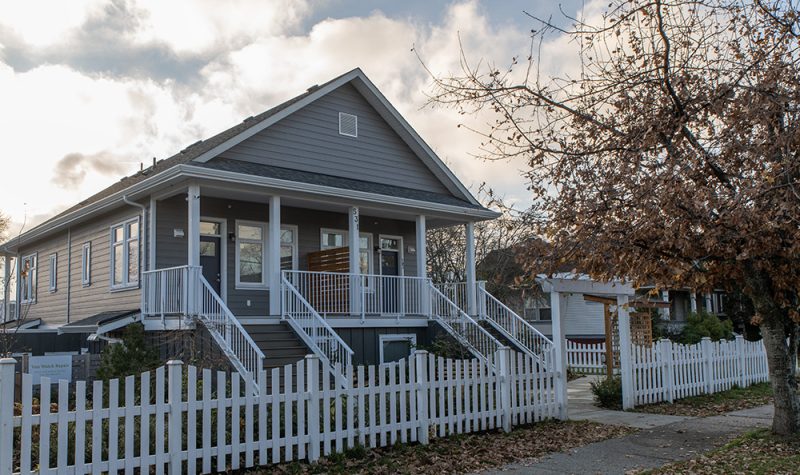Nanaimo city council is looking at restricting a property tax exemption designed to encourage new multi-unit residential buildings in the Old City and downtown.
The Downtown Revitalization Tax Exemption applies to new multi-family residential and commercial buildings as well as renovations within the revitalization area spanning from the waterfront to Pine Street and the Millstone River.
The exemption provides a ten‐year tax exemption on the municipal portion of property taxes within the revitalization area. Currently a new building must have a building permit value of at least $500,000 and multi-family residential buildings must have four or more units to qualify for the tax exemption. The value of renovations must equal half of the current assessed value of the property to qualify.
So far, six buildings with a total of 709 units, mostly market rentals, have benefitted from the tax exemption.
At the governance and priorities committee on Monday, council voted to limit the tax break to developments with a minimum of 10 units and a building permit value of at least $2 million. The length of the tax exemption was also reduced to five years, down from the current exemption of 10 years.
Council also voted to limit the number of extension requests to two and to give staff the authority to approve applications for the tax exemption.
Of the six projects that got the tax break, only one project for a two-story, eight-unit rental apartment building on Kennedy Street would not have qualified under the proposed changes.
“It could swing some smaller developers, discourage them or make the project look less attractive to the point where maybe they just don't bother trying it,” said Shea Stoney, a mortgage broker who was involved with developing the apartments on Kennedy Street.
Shea’s business partner Rob Allegrini, who is a realtor, says that while the tax exemption was helpful the bigger issue was a complex and time consuming approval process with the city.
“I don't foresee us ever developing in Nanaimo again,” he said. “There were just too many hurdles to have to overcome, just to get the project on board. Simple things like the design panel where we had to make numerous changes to our project, which ended up costing us not a significant amount, but definitely an amount, and it delayed us for about four months.”
Allegrini says that the red tape that developers face in Nanaimo is a unique challenge.
“I'm building something in the Fraser Valley and I haven't experienced anything like that,” he said. “It's a much, much easier, simpler, more streamlined process.”
Councillor Hiliary Eastmure said at the committee meeting that she favours starting the tax exemption at a minimum of eight units to help encourage development of smaller residential buildings like the one on Kennedy.
“We've seen some development proposals come forward, where it's too dense on the piece of property, and then you're losing things. Developers aren't including long term bike storage and things that really make for a good long-term development that actually really serves the needs of the people who live there.”
City staff say that a number of developers who specialize in fourplexes have approached the city recently. This comes as a provincial law that will upzone all single family lots to allow a fourplex without zoning amendments passed third reading on Wednesday afternoon.
Mayor Leonard Krog also supported increasing the minimum number of units to 10 to encourage larger buildings in the Old City.
“Given the provinces likely to allow fourplexes anyway on a single family lot, it would be kind of silly to vote in favor of that being the minimum,” he said. “That's going to happen as a matter of right. So if you're going to do it, go big or go home.”
After the motion to increase the minimum number of units to 10 passed, with only Councillor Ian Thorpe voting in opposition, Councillor Ben Geselbracht said that increasing the exemption to $2 million made sense.
“If we're going to limit it to 10 plus units, you might as well just put it to $4 million because $2 million will get you a unit and an outhouse,” he said.
That motion passed with Thorpe and councillor Janice Perrino opposed.
Krog was the lone vote against reducing the amount of time of the tax exemption to five years.
City staff will incorporate the feedback from the committee, consult with developers, and bring amendments to the bylaw and policy to a future council meeting.
Listen to CHLY’s story below:


